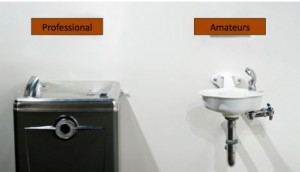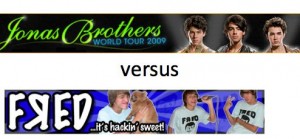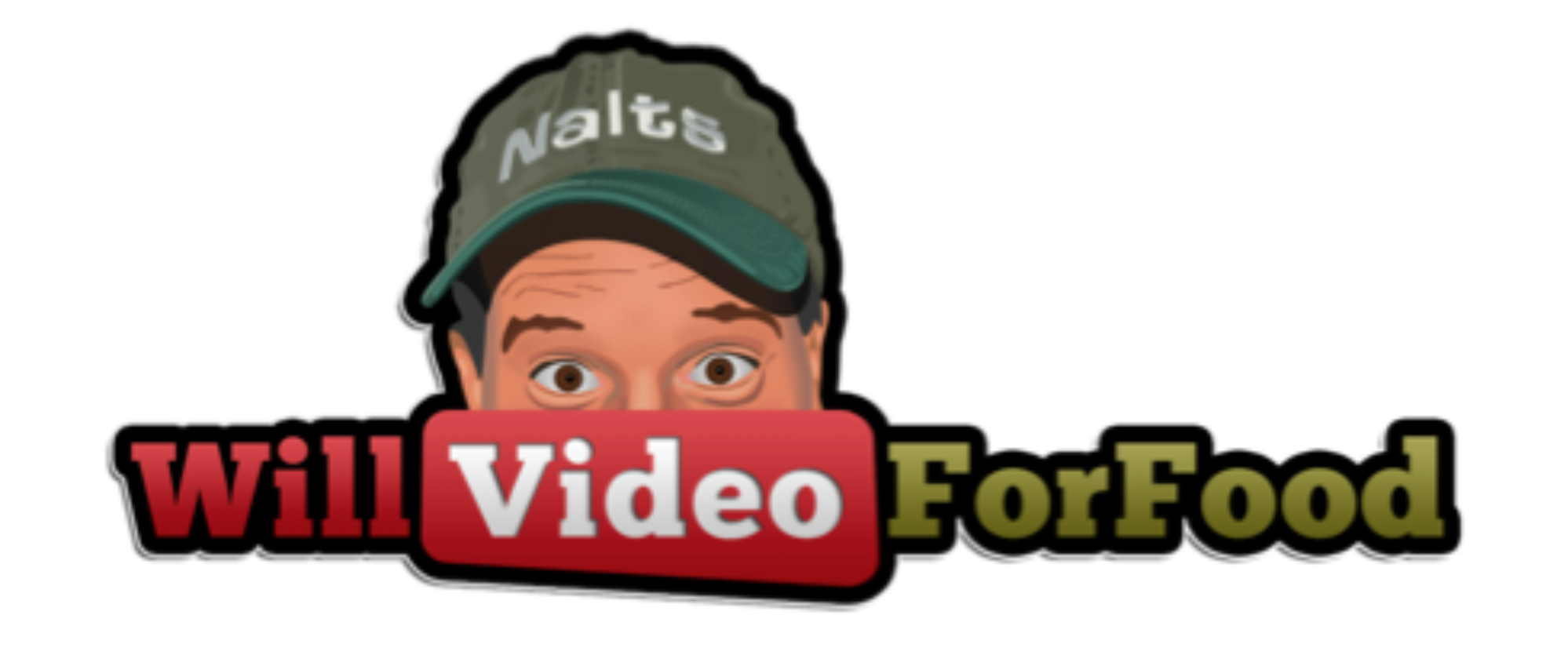Will YouTube Segregate Professional from Amateur Content?

Currently YouTube doesn’t distinguish between professionals and amateurs in its “Partner” program, or in the way it alleges to promotes videos. But this article suggests that’s about to change, and it’s an important sign that YouTube may be transforming from a user-generated platform to a professional media distributor.
Today, advertisers have two choices: they can buy nickel banners that run across user-generated content (cat videos), or higher end “InVideo” buys that surround “Partner” content (anyone from Michael Buckley and Hulu.com to little ol’ Nalts). For advertisers — and audiences –there is no material difference between a guy like Sxephil and a company like the BBC… we all live happily in the same “most subscribed” area, and are treated somewhat similarly. The only stratification that occurs on YouTube is between those that qualify as “Partners” and those that don’t (we’ll call that “user-generated” content). Sure some choosy ad buyers may currently hand pick channels, but that’s a manual and painstaking undertaking. More likely, media buyers care less about the content itself and more about targeting their demographics — regardless of whether the 18-25 year old male is watching a Jonas Brother or Fred.
The original and core audience of YouTube arrived to escape professional content, and they embrace amateurs. Here are parts of the only comments on the ClickZ article, and these opinions represent a large audience that flocked to YouTube to escape television:
- If I wanted to watch TV, I’d watch TV. I hate TV, that’s largely why I spend so much time watching “amateur” YouTube videos. I’m wondering if those days are about over.
- It’s so sad to see youtube moving in this direction. Whoever wants to watch tv on hulu, good for them. I go to youtube because I *like* seeing good UGC (gasp)!
As we know, the vast majority of views on YouTube are of content that cannot be well monetized (user-generated, non partner content). Really only a small fraction of total views (but most of its revenue) comes from ads surrounding the Partners. Among those partners, the current most popular 3 YouTube channels belong to true amateurs: Fred, Nigahiga, and Smosh. As the “most subscribed” list progresses, we’ve seen the rise of some professional content like Universal Music and the Jonas Brothers, but they’re still the minority among the top 100. But again, the current ad buy treats these amateurs and professionals similarly… The standards are the same (copyright and taste/tone), and the cost is the same (per impression).
If YouTube segments professional content from the mass community of YouTube “stars,” that’s a non trivial move. On one hand, I like that I might rise from my #87 position on the blended “most subscribed” list to a presumably higher spot among community videos (which will presumably exclude professionals and be far more robust). On the other hand, it could mean that new viewers to YouTube are steered to professional content, which could have some negative implications for amateurs. You regular WVFF readers have heard me speculate on the costs/benefits of segmenting pro versus amateur content, and I’ve often debated onWillVideoForFood what’s in my best interest — competing with Britney Spears or fellow amateurs.
Here’s an encounter from last week that helps you imagine the change: A large corporate media buyer who knows of my YouTube “hobby” recently told me she was buying ads on professional content, but she smiled and said it wouldn’t be on the UGC stuff I do. The funny reality is that I am actually part of her ad buy and she doesn’t know it. Partners are partners.
If YouTube segments the content for viewers, will they soon craft different ad deals for professionals versus amateurs? Could that change the ad rate and tempt buyers to restrain their ad spending to professional movies, shows and music? If so, YouTube can charge a higher premium, but will have far less content and inventory in these sections — at least initially.
The bulk of YouTube’s core audience will find this segmentation offensive, and evidence that YouTube has abandoned community and is turning into a bigger Hulu.com. But one can’t fault YouTube for wanting to attract a higher level of content to appeal to broader audiences. And that content may command ad dollars that might otherwise flow to AOL, Yahoo, MSN or even Hulu.
Ultimately the segmentation, however, is less interesting than the answers to these 5 questions. Rest assured we won’t see YouTube answering these soon.
- What will delineate “shows” from “community”? Can an amateur have a show, or is that just for pro content?
- Will the pro content provide channel owners special features, more interesting functionality and better monetization options? We’re already seeing special functionality for folks like Oprah.
- Will the precious YouTube homepage promote the pros over the amateurs, because the former is more profitable and may attract a more mainstream audience?
- How will YouTube continue to differentiate itself from alternative channels for professional content, and will studios distribute clips or full episodes (hoping to still migrate audiences to properties where they retain greater control of revenue)?
- Most importantly, will this transformation change dynamics between YouTube (still the largest video distributor by a distance) and professional creators, networks and distributors?


I never thought of myself as ADD until I started reading this blog. Any post that requires scrolling 3 screens or more, I can’t follow.
On an unrelated matter, some of my comments on YouTube videos that might be considered “critical” get deleted. One thing I like about Nalts is, he doesn’t delete the critical ones. He appreciates them for the minor art form that they are.
YouTube strikes again… don’t say it wasn’t to be expected.
From what I see, the Community part of YouTube, the amateurs, vloggers, non-profit and Nalts-alikes, are slowly being reduced to just one of many video categories called Amateur.
The pornographic analogy comes very handy here. “Amateur” is a cross-cutting category, it exists as a part of each other category, just like on porn sites, and is the same time its own “Amateur” category whose existence on YouTube is being threatened – unlike on endless Porn-tube sites. The irony.
My bottom line: YouTube should learn from the model of porn sites, change their paradigm and keep amateur content as an equally important niche since a lot of people obviously prefer it to various pro categories.
The alternative is complete marginalization and eventual disappearance of amateur content.
Now I’m tempted to write (an even longer) blog post about this…
in a few years Nalts, you’ll write a blog about “the death of TV” and how partners used to earn money from ads, but now people have to pay to subscribe to our channels and watch our videos as part of their “amateur subscription package” to Youtube. hell, they might even charge us for having a channel!
p.s. i’m one of those people who visits here quite regularly and never comments
One thing I am interested to see is what this “pro” section will look like for Canadians, considering that 90% of “pro” content is blocked from Canadian IPs because of regional licensing.
Anyways, when it comes down to it, the proof is in the pudding- by which I mean, advertisers choice for either “pro” or partner content will be determined by the conversion rate.
Unfortunately, this rate will be skewed, because advertisers can tailor their campaigns to the major content that they run ads against, based on much more then demographic. But as you said, the demo is all they have to go on for partner content, unless they want to micro-manage every ad to video placement. And that is what kills partner revenue, inefficient non-sensical ad placement, or a lack of advertisers to fit the niche of the content. Seriously… back pain ads running on a video game comedy series?! No wonder I’m making peanuts!
“You Tube may be transforming from a user-generated platform to a professional media distributor.” blah blah blah blah
Social networking is going to need a bailout.
1. nitch.
2. too much work.
3. yep, but they will have something in the corner, they’ll call it Classic You Tube.
4 You Tube will have to really slick it up.
5, That depends, my deflated dollar’s on You Tube becoming the Yahoo of online video.
Bottom line – what was good will last forever, but it’s time to start talk about a viral video museum. The thrill is gone. Was fun while it latsted, but it’s time for something new.
Can you feel it?
Interesting comments. Dahlia- wtf on the deleted comments. I didn’t do that. Welcome to the dialogue Lizzy. I wish more of you would come out of hiding! Jan- kudos on the list.
How is Brightcove doing with this pro-only, subscription fee strategy?
@6 – Not you, Naltsy. One deleter is a contributor on this blog who didn’t like my tone (apparently), which is all I have to say about that. Another is a woman poet I have been following. When I observed that she was defining a well-established female poet primarily in terms of her relationship with a well-established male fiction writer, which struck me as curious and unnecessary, the comment went poof. (Well, I had a point; maybe that was the problem.)
So boring.